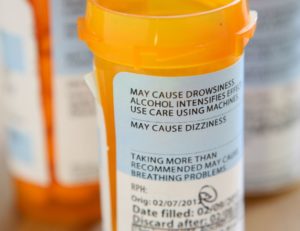
If you are charged with a federal drug offense, you may face a lengthy mandatory minimum sentence. A DC federal drug lawyer can provide you with legal representation and advice so you can try to minimize the consequences you face if you are charged with or investigated for violating the federal drug laws. It is important to find an experienced federal criminal defense attorney to help you understand your options and plot out a strong defense strategy.
Federal Drug Crimes
Federal laws establish different categories of controlled substances, as well as penalties for possession, manufacture, and distribution of controlled substances. The federal laws which regulate narcotics and impose penalties for unlawful drug trafficking are found in Title 21 Chapter 13, Sub chapter 1 of the United States Criminal Code.
21 U.S.C. Section 800 et seq. defines the different categories of controlled substances, which are regulated and/or prohibited by the federal government. Section 800 et seq. identifies the various narcotics which are subject to regulation by the federal government and divides them up into “schedules,” which are listed respectively “Schedule I – V.”
Narcotics are categorized respectively by: (1) the type of drug and its potential for abuse, (2) the danger of the substance, (3) whether there are currently any accepted and safe medical uses for the substance, and (4) whether the drug leads to physical and/or psychological dependence. The differences between Schedules I – V are as follows:
- Schedule I narcotics are substances without a medicinal use that have the highest risk of being abused.
- Schedule II narcotics are substances that have some accepted medical use with severe restrictions, but that have a high risk of abuse and can result in severe physical or psychological dependence.
- Schedule III narcotics are substances with less potential for abuse than Schedule I or II drugs. These substances have some medicinal use, low or moderate risk of physical dependence, or high risk of psychological dependence.
- Schedule IV narcotics are substances with low potential for abuse, limited potential for dependence, and an accepted medical use.
- Schedule V narcotics are substances with an accepted medical use, a lower potential for abuse relative to Schedule IV drugs, and limited risk of physical or psychological dependence.
Potential Penalties
Federal drug crime penalties are set forth in 21 U.S.C. Sections 841 – 865. Section 865 outlines the various penalties for narcotics violations, including but not limited to: investing in illicit drug profits; possession with intent to distribute; conspiracy to distribute or conspiracy to possess with the intent to distribute; distributing controlled substances to another person, with enhanced penalties for distribution to persons under the age of 21 years old; maintaining a premises where drugs are manufactured or sold; manufacturing unlawful drugs near schools; and a host of other criminal acts related to unlawful drug trafficking. Most narcotics trafficking offenses, including possession with intent to distribute and conspiracy to do the same, will generally result in felony charges.
Under federal law, the prosecutor does not have to prove you sold drugs in order to charge you with intent to distribute. You can be charged and convicted of this offense based on the volume of controlled substances under your control as well as other evidence seized by the government which an expert can identity as indicia of intent to distribute.
For example, under U.S. Code Section 841, you face a minimum of 10 years’ incarceration for possession with intent to distribute 280 grams or more of a mixture of a substance containing a measurable amount of cocaine base commonly referred to as “crack,” or for possessing with intent to distribute 10 or more grams of a substance containing a measurable amount of LSD.
If a case like this went to trial, the government would likely call an expert witness who would testify that circumstantial evidence such as recorded wire-tap conversations, undercover purchases, drugs stashes recovered from the execution of search warrants, and large quantities of cash and packing materials recovered by law enforcement show the accused’s intent to distribute narcotics.
Working With a Federal Drug Lawyer
 A DC attorney can help you decide how to approach a criminal charge for a federal drug offense based on your particular case. You will need to decide whether to negotiate with federal prosecutors for a plea bargain for a lesser offense or reduced sentencing range, pursue pretrial suppression of evidence and/or statements, or whether to vigorously fight the charges at trial before a jury of your peers. Should you decide to fight the charges at trial, the following are common defenses to federal narcotics charges:
A DC attorney can help you decide how to approach a criminal charge for a federal drug offense based on your particular case. You will need to decide whether to negotiate with federal prosecutors for a plea bargain for a lesser offense or reduced sentencing range, pursue pretrial suppression of evidence and/or statements, or whether to vigorously fight the charges at trial before a jury of your peers. Should you decide to fight the charges at trial, the following are common defenses to federal narcotics charges:
- Illegal search: The evidence that you had the narcotics in your possession cannot be used against you because the evidence was uncovered in an illegal search in violation of your Constitutional rights.
- Lack of possession: The drugs were not under your dominion and control.
- Lawful purpose: You had a prescription for the narcotics or had the drugs in your possession while undergoing a legitimate medical treatment overseen by a licensed physician or health care provider authorized to prescribe controlled substances.
- Entrapment:. You were induced by law enforcement to commit a narcotics trafficking offense that you would not have otherwise committed but for the improper coercion of law enforcement.
These are just a few of several possible defenses that can be raised by a legal professional, depending on the particular circumstances of the case.
Contact a DC Federal Drug Attorney
When facing serious charges in federal court, the decisions you make to help defend your rights are extremely important. By seeking help from a DC federal drug lawyer who understands how to practice in federal court, you can begin making decisions that can make a big difference in your case. Contact an attorney to learn more about how you can fight federal drug charges and protect your rights.
